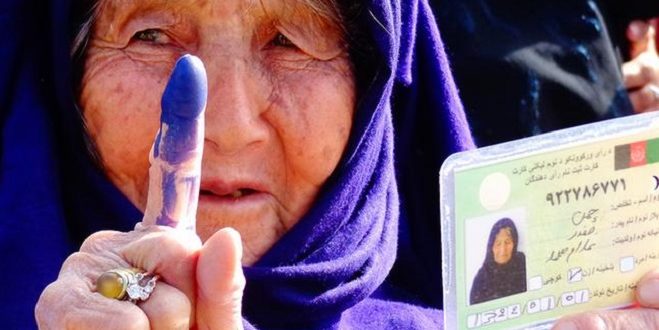Under tight security measures and fear of violence, the 2019 Afghan presidential election kicked off on Saturday, September 28, 2019. Afghanistan’s Independent Election Commission (IEC) announced that about 9.6 million Afghans including 3.3 million women had registered to vote in 2019 presidential poll in 29 thousand polling stations across the country. As many as 15 candidates including the incumbent president Mohammad Ashraf Ghani and his Chief Executive Officer Abdullah Abdullah contested in this election.
The 2019 presidential election was important to anti-Taliban Afghans. They knew that an elected Kabul government would enjoy more legitimacy to deal with the insurgent group. Many pro-democracy groups saw the 2019 presidential as a mere chance to extend democratic process and resist a hasty unconditional comeback of the Taliban— an outfit that repeatedly labeled the Afghan election as “an American-led show” and threatened to attack polling stations, block roads and target Afghan voters to undermine the process.
The Taliban insurgency, which have been waging war against the Afghan government and people, have always denounced Afghan parliamentary and presidential elections but since 2001—the year a United States-led invasion toppled Taliban regime—millions of Afghans voters have participated in elections to elect representative parliament and government.
Why the Taliban boycott election?
The hardcore militant group of Taliban have long been hostile to election, describing it as a US mechanism to influence Afghans’ mind and will. As a hostile foe of the Kabul government, the group have always threatened to attack Afghan elections to undermine the Afghan government.
In truth, the Taliban have blood in their hands. Those parties that smell blood are afraid of public vote. The hardline Taliban leadership may know well that a large number of population in major cities resist the type Islamic Emirate they are seeking to impose on nation. The image, the insurgent group have developed of itself in the mind of young educated Afghan population, is rigid, barbaric, and obscurantist. Many young Afghans in urban areas are fully convinced that a Taliban comeback or rule marks the end of their soft-boiled but hard-earned social and political freedom.
Far from what the hardcore insurgents are doing to jeopardize Afghanistan, Taliban approach on governance—as was presented during their rule in late 1990s—is a mixture of tribal behavior and Deobandi fundamentalism. Democracy and election have no place in their narrow tribal mindset. The Taliban leadership may understand well that majority of urban Afghan population do not submit to their rule as the Afghan voters, today, September 28, went to the polls to say a loud no to the Taliban ideology.
23 years ago on September 28, the Taliban took over Kabul and established the Islamic Emirate Afghanistan in the country’s capital. 20 years later on the same day, Kabul residents, amid fears of violence and fraud, tuned out to cast their votes and sent a clear message to the Taliban and their supporters: we don’t like you and your Islamic Emirate.
The Afghans have paid a heavy price to keep the current political system on hold, and the Afghan security and defense forces have carried the main burden in this battle. On January 25, 2019, Ashraf Ghani, the incumbent president who is a presidential candidate in this round too, said more than 45,000 members of the country’s security forces were killed since 2014.
The outcome this election is expected to be disputed and the two leading candidates, Ashraf Ghani and Abdullah Abdullah, might claim to be the winner.
No matter who is going to be declared the winner, the anti-Taliban Afghans turned out on Saturday, September 28, 2019 to prefer democracy over Taliban style Emirate.




